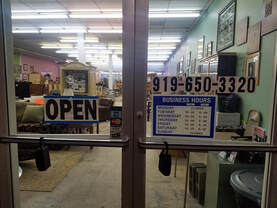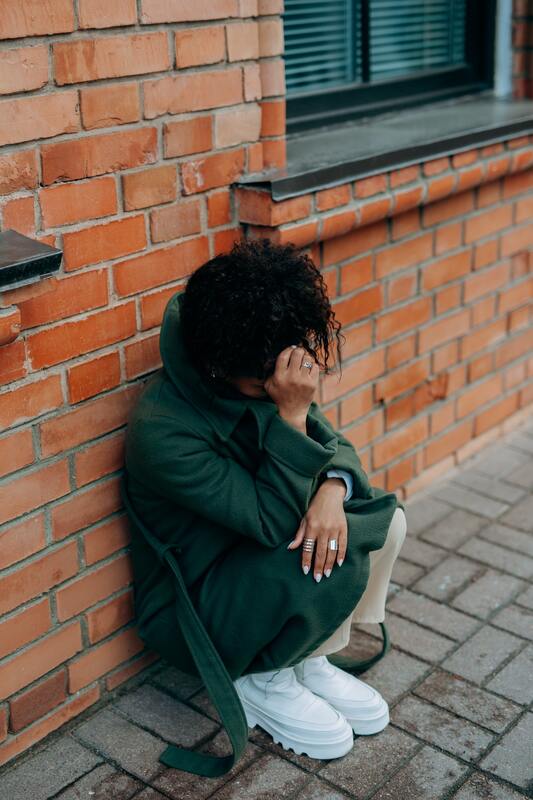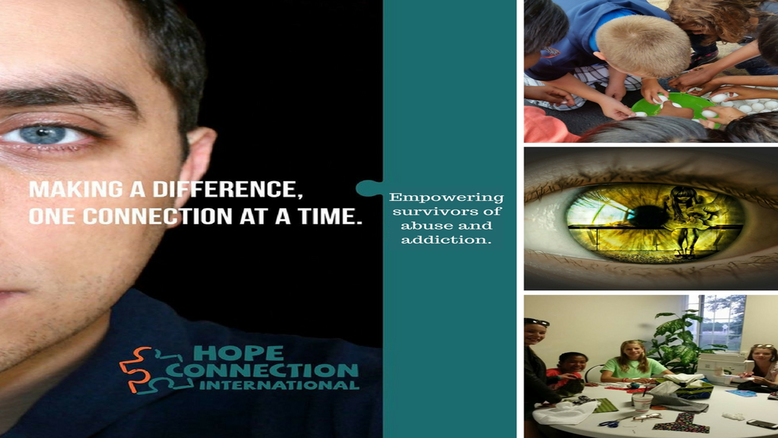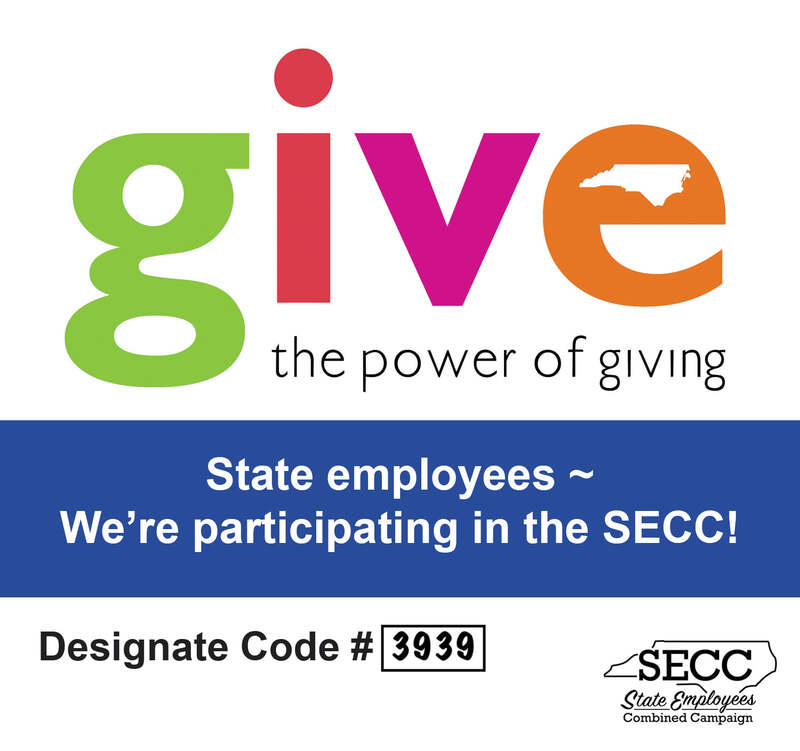If you are looking for support groups or a community care center, contact us today. Hope Connection International can be reached by phone at (919) 377-1785.
Addiction to drugs or alcohol can damage your health and your personal relationships, and it can drain your finances. It can lead to strained or broken relationships with loved ones, the loss of a job and not enough money to pay the bills. Addiction may be an ongoing battle, but financial recovery doesn’t have to be. With a solid plan, you can get your finances under control. The experts at creditcards.com created a guide to break down how to recover from the impact of addiction on your finances and ways to rebuild your credit score after rehab:
https://www.creditcards.com/credit-card-news/rebuild-finances-after-rehab/ I am the son who died from an accidental overdose.
It breaks my heart, but I will say it. I was an addict. I was, and am, also a valuable human being. Do not turn away from me. I forgive myself for being honest, for trusting too much, for forgiving again and again, for being me in a false world where values are upside down, for defending others, for trying to find some kind of justice, for trying to protect to relatives who were lost a long time ago, for trying to find some kind of coherence in our lives, for trying to find the good in others, they no longer existed, for trying to help someone who did not even see what is wrong because was lost long time ago, to try to be a family member who cares when they never see me or love me as a family, to be blind all these years and never see that...
 Many people find success with traditional treatments for addiction, but the drawback of traditional methods of recovery is that they sometimes leave gaps in care. Using alternative treatments for recovery, like mindfulness, stress management, and exercise, can help fill those gaps. For some people, that means using these in place of more traditional treatments, while others find that they’re a great complement to what they’re already doing. Almost 28 million people around the world are battling a substance use disorder. It can affect anyone including a child, a parent, and even a spouse. Recognizing the signs of a drug or alcohol addiction can be vital to saving a loved one’s life.
Animal-assisted therapy isn't designed to be a stand-alone therapy. When combined with other treatments for substance use disorders, the therapeutic approach can motivate patients to stay in treatment. Animals can also help therapists and clients resolve mental health problems in a way that isn't possible with other types of therapy alone. - Jaime Acevedo, Outreach Specialist
For more information on animal-assisted therapy, visit DrugRehab.com  For recovering addicts, getting back to work is an important part of the rehabilitative process, a way of establishing a structured and healthy lifestyle that helps them remain clean and sober. Unfortunately, finding a job that can sustain you, one with true growth potential, takes time and a lot of persistence and work. In the meantime, you need some way to earn an income and make ends meet as you job hunt. Fortunately, the gig economy offers an opportunity to make money doing work that draws on your creativity, abilities and personal interests.  Envisioning a healing and recovery community, Hope Connection aims to open a long-term housing facility that offers safe living arrangements for survivors of domestic violence and ongoing substance abuse recovery. With property values skyrocketing, finding affordable housing in the Triangle area is more difficult than ever. With abuse and addiction victims most vulnerable to homelessness, the Triangle area needs supportive, long-term housing more than ever!  In early 2016, Debra Barkett proceeded to launch a social enterprise that financially aids Hope Connection in the future. Then, she stumbled across a commercial storage facility down the sidewalk from the Community Care Center at the South Hills Mall on Buck Jones Road. In the beginning, we rented the space to store in-kind donations at the facility. My name is “Jessica”. I’m 24 years old. I’ve been a victim of domestic violence. I’ve been a victim of sexual assault. I was molested as a kid and was in state foster care. As a newborn baby, my mom was a drug addict and a prostitute. She and the guy that would have been my father had a drug deal and he got shot. Before that, she left me on the side of the road. She didn’t want me so I’ve been in the foster care system since I was a newborn until age 21 because in North Carolina you can stay in foster care until age 21.
If you are not familiar with our support groups, we offer several different options for people suffering from difficult personal situations. Through semiannual cycles, these groups meet every week led by trained facilitators. Participation is completely free to all clients, and clients may continue to participate in our programs as long as needed. Our largest support group is the Mending the Soul program for abuse survivors. Since the founding of Hope Connection, Mending the Soul has been a staple of our programs, as HCI strives to provide ongoing support for women and men who suffer from relationship violence. With empowering abused and addicted people at the core of our mission, Hope Connection has opened four new programs during the past year for people experiencing a variety of situations. In 2017, we offered eight support groups including Mending the Soul, Loved Ones of Addicts, Addiction Recovery, Grief Support, Depression Recovery, Princess Lost/Princess Found, Teen Connect, and Caring for the Vulnerable Child. Through Mending the Soul, we served 34 clients. Through Loved Ones of Addicts, we served 21 clients. Through Grief Support, we served 11 clients. Through Addiction Recovery, we served 10 clients. Through Depression Recovery, we served 8 clients. With Teen Connect, we served 3 clients. Finally, through Princess Lost/Princess Found, we served 1 client. That brings the total number of clients served by Hope Connection to 493 since our founding in 2012. After engaging in small groups, participants like “Jessica” revel in the emotional encouragement our programs have to offer. In order to aid victims with their daily needs, we offer financial support to low-income clients, especially those in high danger situations. In order to help clients with housing utilities, groceries, daycare, car insurance, legal assistance, and/or food, we post specific needs on our Facebook accounts, requesting funding via Facebook. Out of the 10 domestic violence victims we sponsored in 2017, 40% are currently independent and no longer in need of funding. While many of our sponsored victims now enjoy stable footing, many still need help in the midst of crisis. About 40% of our sponsored victims still suffer from an elevated risk of attack from their abusive partners. Providing clients crisis prevention education, our facilitators work hard to offer them the love, advice, and resources necessary to get through the hard times. |
|
|
Get Our Newsletter! |






 RSS Feed
RSS Feed




